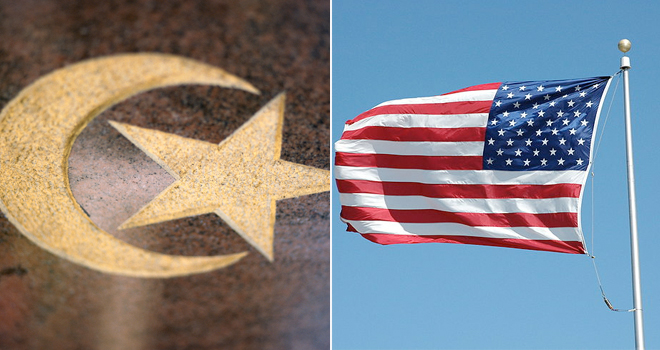The American Civil Liberties Union charged Thursday that the FBI is using the “guise” of “community outreach” to the Muslim community to “collect and illegally store intelligence information on Americans’ political and religious beliefs” in violation of the Privacy Act.
Bureau officials counter that the latest batch of documents obtained by the ACLU through the Freedom of Information Act are just standard internal reports intended to help manage the FBI’s resources and make sure agents are following protocol.
An FBI official also told TPM that the ACLU “may misunderstand the distinction between documentation for community outreach purposes and documentation to an investigative file.” Some of the documents the ACLU published “relate to investigations, not to community outreach,” the official said.
Regardless of whether including information obtained in the course of outreach efforts in investigative files is routine or a mistake, Muslim leaders say the charge further hurts the FBI’s outreach efforts.
“The allegations themselves are extremely damaging to the partnership,” Alejandro J. Beutel of the Muslim Public Affairs Council told TPM. “Whether or not we’re talking about whether this is deliberate or accidental, we really need to hear some immediate clarification from officials at the FBI because it really seems like the partnership — which has been very important to keeping our nation safe and secure — has come under enormous strain, especially in the past few months.”
One of the documents obtained by the ACLU describes the bureau’s participation in a career day sponsored by an Assyrian community organization in 2009. The ACLU says the memo “recorded information about the organization’s expressive activities, the identities of several of its leaders, and the content of conversations with three community leaders and members about their opinions, backgrounds, travel histories, educations, occupations and charitable activities.”
Another document from 2008, the ACLU said, shows that an FBI agent “collected and documented individuals’ contact information and First Amendment-protected opinions and associations, and conducted internet searches to obtain further information about the individuals in attendance, including, in one instance, the photo of a dinner participant.”
“It’s one thing for the FBI to say to a community group, ‘We’re going to come and meet you to establish ties,’ ” Hina Shamsi, director of the ACLU’s national security project, told the Washington Post. “But it’s a very dangerous way to proceed to collect intelligence under the guise of community outreach. … The FBI has a job to do, everyone understands that, but they are hurting their own efforts.”
The FBI wants to draw a distinction between investigative files and internal logs on FBI agents’ activities.
“Internal reporting requirements allow for robust program management which ensures that personnel time and resources are being used effectively and in compliance with applicable laws, regulations, policies and program requirements,” the FBI said in a statement. “However, FBI policy requires the data regarding outreach contacts should be kept separate from other databases where liaison contact information is stored.”
The FBI’s statement also said there’s “no formal linkage” between the FBI’s Community Outreach Program at both headquarters and in their field divisions and their operational divisions. Outreach coordinators in the field, the FBI said, “are encouraged to speak regularly with the investigative program managers in their office for general awareness and to prevent community partners from being contacted by multiple FBI components in an uncoordinated fashion.” They are also supposed to coordinate with federal prosecutors in their local U.S. attorney’s office as well as local police departments and other local, state and federal agencies.
MPAC enjoys a generally positive relationship with the federal government. One group which doesn’t is the Council of American Islamic Relations. They have no formal relationship with the FBI due to the bureau’s concerns about CAIR’s status (along with over 200 other organizations) as an unindicted co-conspirator in a terrorism funding case and “concerns with regard to their national leadership.” They also think the new documents further damage the FBI’s efforts.
“FBI outreach initiatives will inevitably have a counterproductive chilling effect on constitutionally-protected activities if they are merely a cover for illegal intelligence gathering,” CAIR National Executive Director Nihad Awad said in a statement. “American Muslims should feel free to focus on positive civic engagement without worrying that they will be viewed solely through the prism of national security.”
Other Muslim organizations also expressed concern, including an official with the Muslim Community Association, a group mentioned in the reports. “Like all Americans, we want to help the FBI. Now we feel betrayed,” MCA Board Secretary Isa Shaw said in an ACLU press release. “We support the idea of building trust through FBI community outreach programs, but the government should not be taking advantage of it to violate our First Amendment rights like this.”






